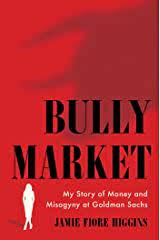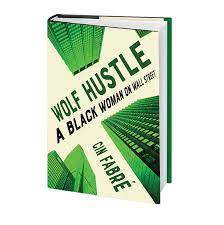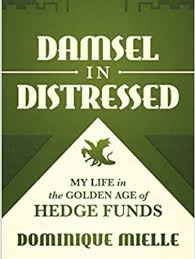


I recently interviewed Dominique Mielle, author of “Damsel in Distressed: My Life in the Golden Age of Hedge Funds.” The book details Mielle’s journey that led her to a 20-year career at Canyon Capital, a hedge fund specializing in distressed investing.
Mielle noted part of the reason she wrote the book was that there were no books by women about working in hedge funds.
”I started thinking, is there a book by a woman about women in hedge funds? No, there was not,” Mielle said during the interview.
Mielle’s perspective – a woman in a senior portfolio manager role – is rare to see in book form, because, as Mielle points out, women make up a small percentage of people in senior investing roles.
Now, with reflection and a career in her rear-view mirror (she retired in 2018), she is vocal about the lack of women at Canyon and the dearth of women in senior investing roles throughout the industry. Mielle cites that although research and studies prove women make good investment decisions, they continue to be underrepresented in management positions.
She also notes that while she wasn’t a victim of active sexism, she did at times feel very isolated at the job. She writes, “Whom could I talk to if I felt, rightly or wrongly, that my ideas were underinvested in because I was a woman?”
Mielle’s tone is light-hearted and humorous at times, and while the book is not centered on the injustices she faced, she does point out a few instances when the line between mild prejudice and flat-out sexism got crossed. She recounts in the book a meeting with a lead equity investor for the firm’s CLO (collateralized loan obligation). The discussion turned into a back and forth over an investment guarantee over one of the underlying securities. The 60-year-old CFO responded to her by saying, “You are a woman. I am a man. Therefore, we’re not going to continue this debate.”
Despite incidents like this one, Mielle had a long and successful career and rose to senior portfolio manager and became a partner at Canyon, the first woman to do so. By Mielle’s account, Canyon was a good place to work. The off-color comments and casual sexism were not an obstacle for Mielle but that doesn’t diminish the times it happened.
The lack of women in senior positions is certainly one reason why we haven’t more books about detailing their stories, but as more women achieve success in the industry, publishers are taking note and their stories are making it to print.
In addition to Mielle’s book, there are two other books recently published written by women about their experience working in and succeeding in the finance industry –
Bully Market: My Story of Money and Misogyny at Goldman Sachs by Jamie Fiore Higgins published by Simon & Schuster and Wolf Hustle: A Black Woman on Wall Street by Cin Fabré published by Macmillian.
There are parallels, but each of these women tells their own unique story, and that’s the point.
Fiore Higgins worked for Goldman Sachs for 18 years, became a managing director at Goldman Sachs and was the highest ranking woman in her department.
Fabré became a high-earner broker at a brokerage firm similar to Stratton Oakmont, the firm featured in the in the Wolf of Wolf Street. Fabre is the daughter of Haitian immigrants and her perspective as a woman as color working in finance is even rarer.
These books are deeply personal works and lay bare the sexism that is at the underbelly of the finance industry. Most people wouldn’t be surprised by these stories, but it’s important that they’re told.
Higgins, Mielle and Fabré navigated the systems around them and worked their way to high-level positions and made a lot of money. Each of these stories share a similar thread: they each dealt with prejudice and sexism and in Fabre’s case racism in their own way, but they persevered. At the end the day, these stories are about ambitious women succeeding in a male-dominated industry. What’s also clear is that they had to endure a lot more abuse and obstacles than their male counterparts to get there.
Mielle addresses her ambition in the book, “I never apologized for, restrained or disguised my personal ambition. That woman that Canyon Partners hired was not a good girl who chose to get along with people as her seminal virtue. I was a girl who was good as seeing what she wanted and convinced deep down that she could get it.”
These stories are all unique and I have no doubt women currently working in finance will relate to them. I hope more agents and publishers will give these women a platform to tell their stories because we need a women working in finance genre.
I’m also optimistic these books will help change the finance industry so sexism and racism are no longer tolerated and become a thing of the past rather than an obstacle to success.
